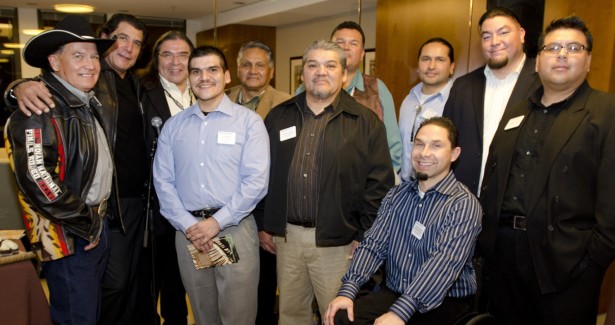January 11, 2012
Starting as an idea and a survey to tribes in 2009, the California Tribal College initiative now has the backing of 25 of the 109 federally recognized California tribes, who hope to enroll their first students as early as February 2012.
The college doesn’t have a permanent home yet, and its permanent name is yet to be determined. But it does have momentum.
“We are looking at the Internet, and carrying on a virtual campus and getting things started right away,” said Marshall McKay, tribal chairman of the Yocha Dehe Wintun Nation.
Project Coordinator Della Warrior, also of the Yocha Dehe Wintun Nation, and a former director of the Institute of American Indian Arts, said the immediate goal is to find a central campus in California with housing for 150 students. Eventually, the plan will be to have satellite campuses throughout the state.
“The tribes now are beginning to take control of their own institutions. And now it’s time for California,” she said.
Tribes who are currently participating in the formation of the college include the Hoopa, the Morongo, the Miwok, Pomo, and others, with a concentration of tribes around the northern California counties of Yolo Lake and Sonoma. But the founding members, who have been working with the American Indian Higher Education Consortium, are eager to collaborate with other California tribes to solidify their advisory and leadership council, and select a board of regents and instructional staff.
Tribal administration and language revitalization will be core components of the curriculum, McKay said. “The traditional way of training was through the grandparents. We are lacking that component these days, so now we’ve got to have another way to train and teach our people the complicated and complex issues that they’ll have to be dealing with.”
The college will also eventually offer bachelor’s degrees and advanced degrees in subjects like law, medicine and architecture, Mckay said.
There are currently no accredited tribal colleges in California, despite the fact that the state is home to 450,000 Native American people. Of those, “less than one percent are going to college, and less than half that are graduating,” said Warrior.
